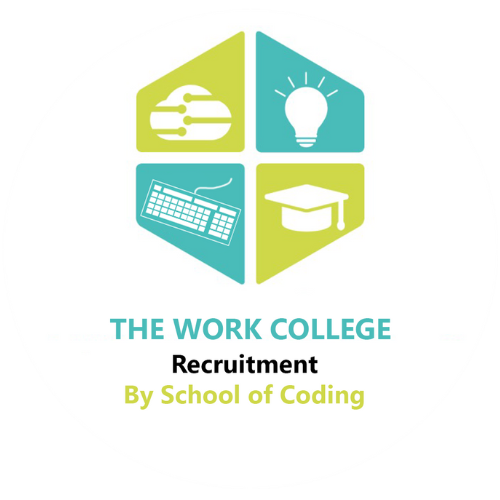Introduction
Job interviews are your opportunity to shine, but saying the wrong thing can dim that light very quickly. Even the most qualified candidates can fall into the trap of saying something inappropriate or unprofessional, which can lead to missed opportunities. Knowing what not to say is just as important as preparing the right answers.
In this article, we’ll explore the 10 things you should never say during a job interview—and offer helpful alternatives to set you up for success. Whether you’re a seasoned professional or gearing up for your first interview, avoiding these pitfalls can significantly boost your chances of landing the job.
Let’s dive in!
1. “What does this company do again?”
Nothing shouts “I didn’t do my homework” like this question. Employers want you to have a fundamental awareness of their company’s mission, values, and the position you are applying for.
Why is it a mistake?
Enquiring about the company’s activities implies a lack of preparedness and interest, which can immediately destroy your professional image.
What to say instead?
Instead, ask precise questions to demonstrate you’ve done your research: “I see that your organisation has been expanding into new markets. How has this expansion affected the team structure?”
Tip: Before the interview, research the company’s website, recent news, and LinkedIn profiles of key employees. This will arm you with smart questions and show genuine interest.
2. “I hated my last job/boss.”
Regardless of how poisonous your previous employment was, never bring negativity into an interview. Complaining about a former position or company will reflect negatively on you, not them.
Why is it a mistake?
Badmouthing your previous job indicates to interviewers that you may bring a negative attitude to the workplace. It may also arouse worry that you may criticise their firm if things do not go well.
What to say instead?
Try to frame it as follows: “While there were challenges at my last job, it helped me grow professionally and taught me valuable lessons in communication and teamwork.”
Tip:
Always remember what you learnt, not what went wrong. Maintain a positive attitude and professionalism, regardless of your previous experience.
3. “I don’t have any weaknesses.”
It may seem like a good idea to demonstrate confidence by professing to be flawless, but this might backfire. Everyone has places for improvement, and dismissing this might come out as arrogant or lacking in self-awareness.
Why is it a mistake?
Saying you have no weaknesses makes you appear dishonest or uninformed of your own growth needs.
What to say instead?
Choose a real but treatable weakness. “I often struggle with delegating tasks because I want to make sure everything is done perfectly. However, I’m focused on building trust with my staff and leveraging their skills.”
Tip: When discussing weaknesses, emphasise your efforts to improve them. This demonstrates self-awareness and a developing mentality.
Also read – Apprenticeship vs. Internship
4. “What’s the salary for this position?”
While remuneration is crucial, bringing it up too early in the interview can give the impression that you are more interested in money than the job.
Why is it a mistake?
This inquiry may give the impression that you are just motivated by money. Most businesses will negotiate compensation themselves, especially if they want to move forward.
What to say instead?
When asked about your wage expectations, say: “I’m open to discussing compensation based on the overall package and growth opportunities within the company.”
Tip: Wait for the interviewer to bring up the salary. First and foremost, you should demonstrate why you are the ideal candidate for the position.
5. “I’m just looking for any job.”
Employers want individuals who are enthusiastic about their specific job, not those who are looking for any employment. This statement may give the impression that you are not invested in the role or firm.
Why is it a mistake?
Saying this conveys the appearance that you are uninterested in the work or organisation, which is a significant red flag for potential employers.
What to say instead?
Focus on why you’re interested in that particular position: “I’m excited about this role because it aligns with my skills in [insert skill] and I’m passionate about contributing to [company’s mission].”
Tip: Connect your prior experiences and future objectives with the company’s demands to demonstrate excitement for the job.
6. “How long until I’m promoted?
While ambition is admirable, enquiring about promotions too soon can give the impression that you are more concerned with going up the corporate ladder than with performing well in the position you are looking for.
Why is it a mistake?
It indicates to the interviewer that you may be more interested in the title or the next step than in the actual work.
What to say instead?
It is preferable to enquire about growth chances: “Can you tell me more about the opportunities for professional development and advancement within the company?”
Tip: Prioritise job security and performance before discussing promotions.
7. “I don’t have any questions.”
Interviews are two-way streets. When you don’t ask questions, you miss out on learning more about the role and the firm, and you may come out as disinterested or unprepared.
Why is it a mistake?
Not asking enquiries shows that you are either disengaged or uninterested in the job details.
What to say instead?
Always have questions ready, such as, “What are the biggest challenges the team is currently facing?” in “How do you define success for someone in this position?”
Tip: Prepare 3-5 insightful questions to reflect your interest in the career and organisation.
8. “Sorry, I’m late.”
Punctuality is essential in a job interview. Even with an apology, arriving late might leave a lasting negative impression. It demonstrates a lack of respect for the interviewer’s time.
Why is it a mistake?
Lateness indicates poor time management and a disregard for the process, which is a major red flag for employers.
What to Do Instead:
Always plan on arriving 10-15 minutes early. If an emergency occurs, phone ahead as soon as possible to alert the interviewer.
Tip:
Account for unexpected delays by checking traffic or public transportation schedules in advance.
9. “I don’t know.”
While it is acceptable to not know everything, simply replying “I don’t know” without attempting to answer the question demonstrates a lack of problem-solving abilities.
Why is it a mistake?
It can create the impression that you lack resourcefulness or a willingness to analyse critically.
What to say instead?
If you are unsure, react with: “I haven’t encountered that situation before, but here’s how I would approach it…”
Tip: Ask for clarification or a time to gather your thoughts, but don’t just leave an answer hanging.
10. “No, I don’t have experience with that.”
Even if you don’t have direct expertise with a particular instrument or skill, there’s a better way to express it than simply saying no. Employers like people who are willing to learn and adapt.
Why is it a mistake?
It ends the conversation and emphasises a gap in your qualifications without providing any good spin.
What to say instead?
Try the following: “While I haven’t used that specific tool, I have experience with similar platforms, and I’m confident I can quickly get up to speed.”
Tip: Turn a negative into a positive by demonstrating your eagerness to learn new things.
Conclusion
Job interviews require a fine mix of presenting your talents and demonstrating professionalism. Avoiding these frequent errors helps keep you on track and make a good impression on future employers. Remember that how you say something is just as important as what you say. Staying prepared, professional, and positive will help you succeed in your interview.








